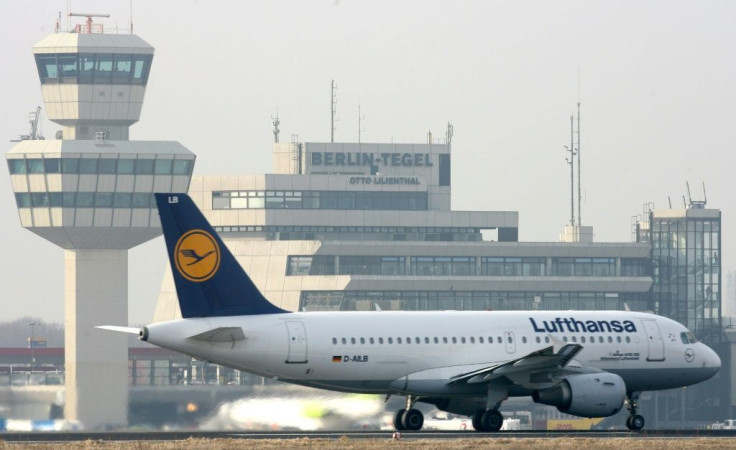Lufthansa Takes Drastic Restructuring Steps, Warns Demand May Not Return For Years

KEY POINTS
- Lufthansa will shut down its Germanwings budget airline
- Lufthansa will decommission more than 40 aircraft
- Lufthansa will reduce the capacity of its Eurowings unit
Lufthansa, Germany’s largest airline, said it will shut down its Germanwings budget airline and decommission more than 40 aircraft in response to dwindling demand amid the coronavirus crisis.
The flag carrier also said it will reduce fleets at its other units, including Austrian Airlines, Swiss International Airlines and Eurowings.
Specifically, Lufthansa will reduce the capacity of its Eurowings unit by scaling back its long-haul operations. The group will also speed up the restructuring of its Austrian Airlines and Brussels Airlines subsidiaries.
Lufthansa has already parked more than 90% of its aircraft fleet since the virus outbreak and has held discussions with the German government about financial aid. In March Lufthansa said it had available credit lines of more than $5.4 billion. The carrier also has an unencumbered fleet valued at about $10.9 billion against which it could borrow money.
The company has already furloughed nearly 90,000 workers and suspended its dividend.
"It will take months until the global travel restrictions are completely lifted and years until worldwide demand for air travel returns to pre-crisis levels," Lufthansa said. "Based on this evaluation… the executive board has decided on extensive measures to reduce the capacity of flight operations and administration long-term."
Lufthansa also said it will hold talks with unions to discuss "among other things, new employment models in order to keep as many jobs as possible.”
Financial Times reported that in a worst-case scenario, Lufthansa projected it will be able to restore up to only 25% of its pre-virus capacity in October and would be only three-quarters of its former size by the end of the year.
“Lufthansa was the first to trim schedules in response to the Covid-19 outbreak, and the first to essentially ground the entire fleet,” said analysts at Bernstein. “Clearly the company is serious about being [at least] 20% smaller in the future.”
The drastic steps taken by Germany’s dominant airline may serve as a harbinger for other carriers.
"You can't understate the disaster that's unfolding right now in the world's airline industry. There's no sugarcoating it," said Richard Aboulafia, aviation analyst at Teal Group. "For the next year to two years, there's going to be a lot of aircraft retirements, a lot of parked aircraft and a lot of utilization reductions."
Aboulafia also commented that the ongoing disruption will allow Lufthansa to get rid of older, less fuel-efficient airplanes earlier than expected. As such it can now "prepare for rebuilding… with better aircraft one day when demand comes back," he said.
Indeed, among the 40 planes slated for decommissioning, Lufthansa said it will immediately retire six of its Airbus A380 aircraft – planes the airline had planned to sell back to Airbus in 2022.
SimpleFlying reported the fate of these Airbus A380s is unclear.
“While Airbus was keen to cultivate a second-hand Airbus A380 market, this is the exact aircraft that airlines don’t want right now. In fact, even British Airways, a keen user of the type, has begun storing A380s,” SimpleFlying noted. “The Airbus A380 is the marmite of the aviation industry, you either love it, or you hate it. Much of the aviation community are huge fans of the giant of the skies. However, the aircraft’s huge capacity and four engines can be a drawback for its operators.”
Lufthansa will now have eight operational Airbus A380s.
Lufthansa has also retired seven Airbus A340-600s, three Airbus A340-300s, eleven Airbus A320s and five Boeing 747-400s.
Consequently, Lufthansa’s capacity at its main hubs in Frankfurt and Munich will be slashed.
The International Air Transport Association, a trade association of the world's airlines, warned that airline passenger revenues will plunge by more than 40% this year, placing more than 25 million jobs at risk.
© Copyright IBTimes 2024. All rights reserved.





















